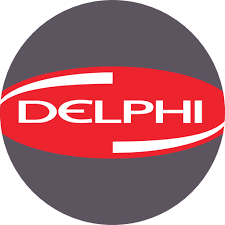- Home
- SmartFIELLDTEQ WiseWater Controller
Smart FIELLDTEQ Wise Water Controller
Key Features of Automated Water Management For Your Business

Our Automated Water Management solutions utilize advanced technology to optimize water usage, monitor consumption, and ensure sustainable management of water resources.
By integrating IoT devices, sensors, and intelligent software, these systems revolutionize water management across industries, agriculture, and urban infrastructures.
Real-Time Monitoring
Track water usage, flow, and quality in real-time through connected sensors and smart meters.
Smart Irrigation
Automate irrigation schedules based on soil moisture, weather forecasts, and crop requirements, reducing water waste.
Leak Detection
Identify and address leaks immediately, preventing water loss and minimizing damage.
Remote Control
Manage water systems remotely via mobile apps or dashboards, allowing quick adjustments and monitoring.
Data Analytics
Analyze water usage patterns to optimize consumption, predict demand, and enhance efficiency.
Integration with Existing Systems
Seamlessly connect with existing water infrastructure to modernize and automate without significant overhauls.
Automated Water Management systems empower businesses, farmers, and municipalities to efficiently manage water resources while promoting sustainability and reducing operational costs.
Smart Irrigation
Lower operational costs by minimizing water waste and identifying inefficiencies.
What We Provide
What we provide with Automated Water Management
Cost Savings
Lower operational costs by minimizing water waste and identifying inefficiencies.
Water Conservation
Reduce wastage through precise control and efficient distribution.
Sustainability
Promote responsible water use and contribute to environmental sustainability.
Adaptability
Adjust quickly to changing water needs or environmental conditions with intelligent automation.
Improved Efficiency
Streamline water management processes, saving time and labor.
Increased Reliability
Ensure consistent water availability and quality through proactive monitoring and management.
Advantages to Automated Water Management system
Key Components of IoT Irrigation Systems
Soil Moisture Sensors: measure the water content in the soil to determine irrigation needs.
Weather Sensors: track environmental conditions like temperature, rainfall, and wind speed.
Flow Meters: monitor water flow rates to detect leaks or inefficiencies.
Control Systems: automate irrigation based on sensor inputs and user settings.
IoT sensors for watering are advanced devices designed to optimize irrigation by providing precise, real-time data on environmental and soil conditions. These sensors are integral to smart irrigation systems, enabling efficient water usage, healthier plants, and sustainable practices
Soil Moisture Sensors
Measure the water content in the soil to determine when and how much to irrigate.
Prevent overwatering or underwatering, ensuring optimal plant health.
Weather Sensors
Monitor temperature, humidity, and rainfall.
Adjust irrigation schedules based on real-time and forecasted weather conditions.
Flow Sensors
Measure the rate of water flow in irrigation systems.
Detect leaks or blockages to prevent water loss.
pH and Salinity Sensors
Test soil and water quality to ensure they are suitable for irrigation.
Help maintain optimal conditions for plant growth.
Light Sensors
Measure sunlight intensity to correlate with plant watering needs.
Adjust watering schedules based on light conditions.
Connectivity Modules
Enable communication between sensors, controllers, and user interfaces via Wi-Fi, Bluetooth, or cellular networks.
